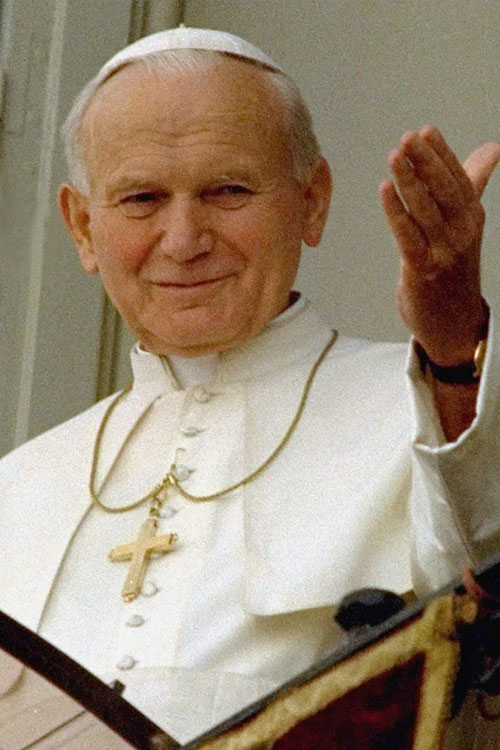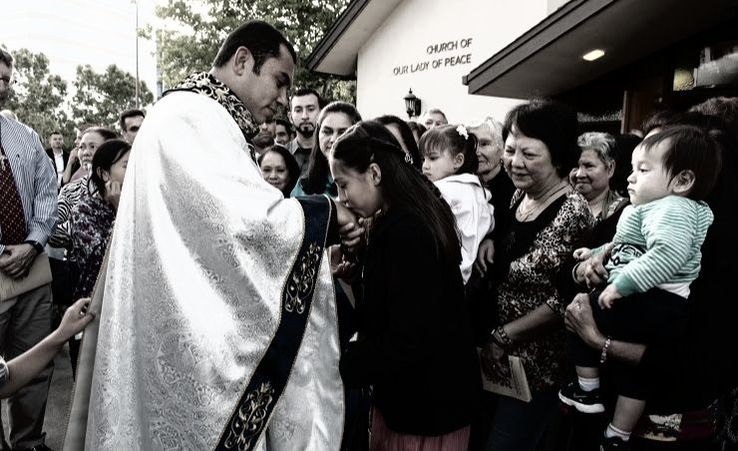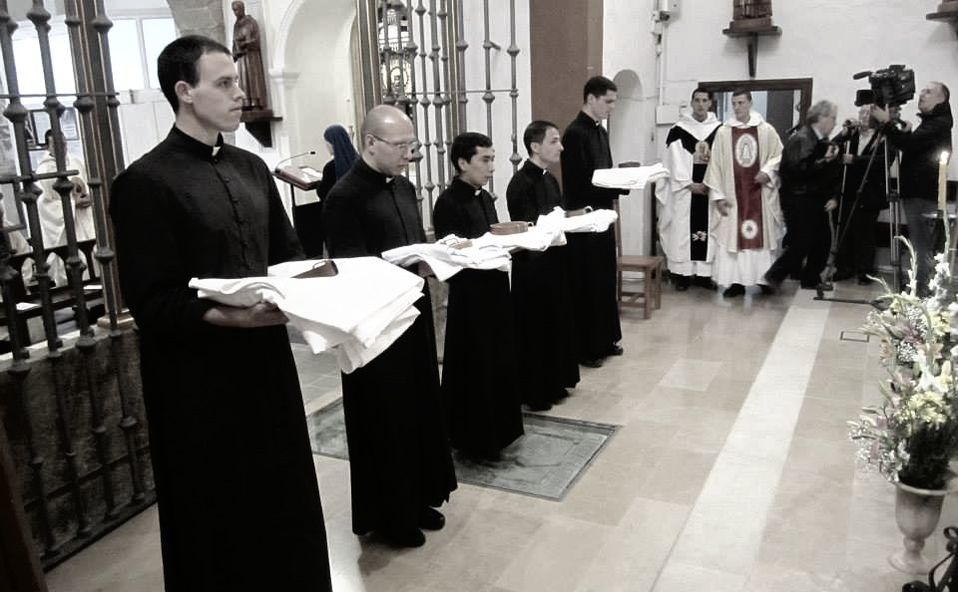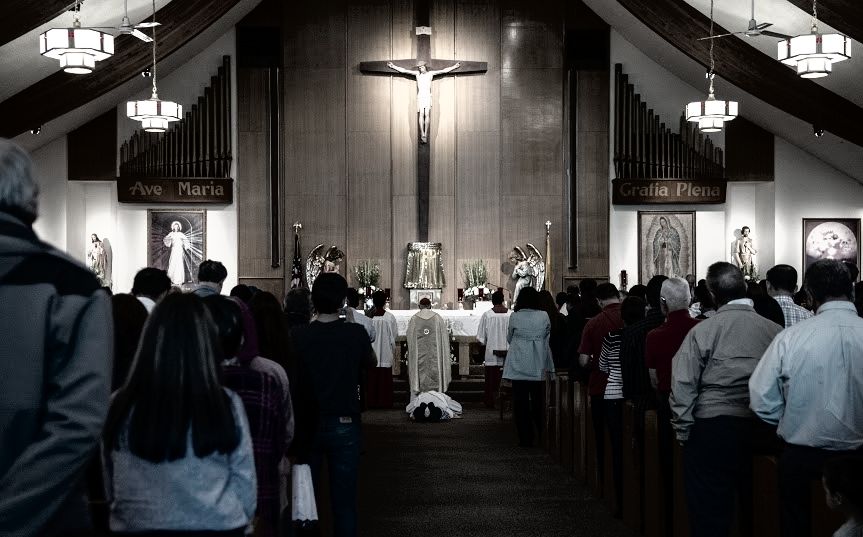Discernment
Desire for Holiness
Before talking about discernment, we must consider this.
In the “second week” of his Spiritual Exercises, St. Igantius of Loyola offers meditations and rules to help men and women discern God’s will and to make life decisions accordingly. Before ever beginning the section dedicated to making such a choice, he offers an important piece of advice that should help anyone in following their vocation.
He says that before we ever begin discerning our vocation, we must already have made up our minds concerning something more important: sanctity. Before following our vocation we must have our hearts set on holiness, set on “disposing ourselves in order to come to perfection in whatever state of life God our Lord would give us to choose.”
If your heart and mind are not set on holiness, then discerning your vocation is in a sense pointless. Our particular vocation is God’s means of bringing us to holiness; it’s the path He has prepared for us to reach holiness in the most concrete and effective way. He calls us to have life (to be) and He calls us to have eternal life (to be holy). He unites the two through our personal calling, our vocation or state of life (to be a priest, religious, or husband/father).
"In the hidden recesses of the human heart the grace of a vocation takes the form of a dialogue. It is a dialogue between Christ and an individual, in which a personal invitation is given. Christ calls the person by name and says: “Come, follow me.” This call, this mysterious inner voice of Christ, is heard most clearly in silence and prayer. Its acceptance is an act of faith."
St. John Paul II

Characteristics of an IVE Priest
The Divine Call
In the midst of discerning God’s will for our lives we must keep one truth always at the forefront of our minds, that our particular vocation has always been present in the mind of God. Although the awareness of our vocation may be recent, that truth is that our vocation has always been a reality. Thus we arrive at the importance of our vocation: it gives the definitive answer to the purpose of our life, to the purpose of God’s having blessed us with the gift of life. He has a mission for each of us.
Furthermore, through innumerable testimonies in Holy Scripture, we know that God calls men to specific vocations. These testimonies include the vocation of the People of God, of Abraham, Moses, Joshua, Samuel, David, Jeremiah, Isaiah, Hosea, etc. In the New Testament, they include the vocations of Jesus, of the first disciples, Levi-Matthew, the twelve Apostles, the rich young man, St. Paul, the Virgin Mary, etc. He has said: You did not choose me, but I chose you and appointed you to go and bear fruit–fruit that will last. (Jn 15:16).
But how do we know if God is calling someone to the priesthood or religious life, or both?
This is the point of discernment.
You did not choose me, but I chose you.
John 15:16
We have to first look at our lives with the eyes of faith. As St. John Paul II said, the acceptance of one’s call is always an “act of faith”. We can only act on faith by having first seen with faith. We always choose according to what we know . Thus, we must look at where God has brought us to, what gifts He has given us, what He has shown us in our lives all with the eyes of faith. His Providence guides all things, even our vocation.
Second we must analyze the movements of our soul. What inspired me to consider the priesthood and/or religious life? At what moment in my life did the recognition of this calling take place? Did it inspire joy and courage? Did it inspire fear and anxiety? Have I been at peace since?
All of these questions will help us see God’s will more clearly. In responding to them, it would be helpful to have recourse to St. Igantius’ “Discernment of Spirits” (313-336) and “Rules for Making an Election” (169-188) that are found in the Spiritual Exercises. These rules and guidelines help us to distinguish between God’s influence and the influence of the devil. Yes, the devil. As much as God wants us to follow our vocation, the devil doesn’t want us to follow it. He was the first to reject his own with the words, “Non serviam”. So, St. Ignatius’ rules and guidelines present us with a clear way of see how God and the devil work according to the present state of our soul, and how we can tell the difference.
In the midst of our discernment we should also keep in mind the words of St. John Bosco. He says, “Those who in their heart feel the desire to embrace this state of perfection and holiness may believe, without any doubt, that such desire comes from heaven because it is too generous and is well above natural sentiments.”
How Does God Call?
God’s call is ordinarily interior.
The ordinary way in which God gives rise to vocations is interiorly, by the divine insinuations of the Holy Spirit in the soul. The inner calling is referred to as an “impulse” by Pius XI, Rerum Ecclesiae, 6. “…it is not uncommon for (young men) to hear God’s mysterious voice in their heart, calling them to the sacred mysteries…,” Pius XI, Mens Nostra, 17.
It is characteristic of the divine calling to propel men to higher things. This is why the desire for the priesthood and/or religious life, a desire for something so sublime and so lofty, can never come from the devil or from the flesh: “This school where the Father is heard and teaches, in order that men may come to the Son, is far removed from the senses; for in it we hear not with ears of flesh, but with the hearing of the heart” (Saint Augustine). Such a call from God is “the foundation upon which the entire building is supported,” as “the religious and priestly vocation cannot come except from the Father of Lights who pours down every good talent and all perfect gifts.”(Sedes Sapientiae ,16)
The Church has never doubted the divine origin of priestly vocations; rather, since the beginning of her existence up to the present day, she has always affirmed it. In that respect, and with relation to that first cause of all vocations, St. John Paul II maintained that “Jesus Christ, the supreme incarnation of the love of God, is always at the origin of every vocation.” The Church has never equated the priestly vocation with a merely human profession, which does in fact come from man.
In the case of a vocation, the initiative always belongs to God: “Since the beginning, the Church has considered the vocations to the ministerial priesthood as a grace conceded by the Spirit of God.”(11) “We must, unhesitatingly and unresistingly, obey the interior whisper, whereby the Holy Spirit changes the heart of man.”(St. Thomas Aquinas)
We must heed the advice of Saint Paul: Let us follow the Spirit (Gal 5:25), and be men of supernatural principles who let themselves be guided only by the spirit of Jesus Christ which is the Holy Spirit, following His call with all haste. We should not feel sorry for ourselves, as Saint Augustine did, “I, convicted by the truth, had nothing at all to answer, but only those dull and drowsy words, ‘Anon, anon,’ ‘presently,’ ‘leave me but a little.’ But ‘presently, presently,’ had no present, and my ‘little while’ went on for a long while . . . but I was displeased that I led a secular life . . . wherewith I was bound most straightly to carnal concupiscence.”(Confessions, 8, 6)
Consequently, if we feel impelled to enter religious life by an inspiration of the Holy Spirit, we should not delay and wait for more signs, but rather, at that instant, seek how to respond by having recourse to a priest or our spiritual director. There we should find encouragement and be accompanied so that that impulse might be made more concrete.
Responding to God's Call

Prompt
Do God’s will and don’t postpone it.
In Matthew, we read that Peter and Andrew, as soon as the Lord called them, left their nets and followed him (4:19).

Generous
With generosity, that is to say with perfection, they left everything (Lk 5:11).

Heroic
“Do not back down in the face of difficult tasks that nevertheless lead to the glory of God and the salvation of souls.”
-St. Thomas Aquinas
